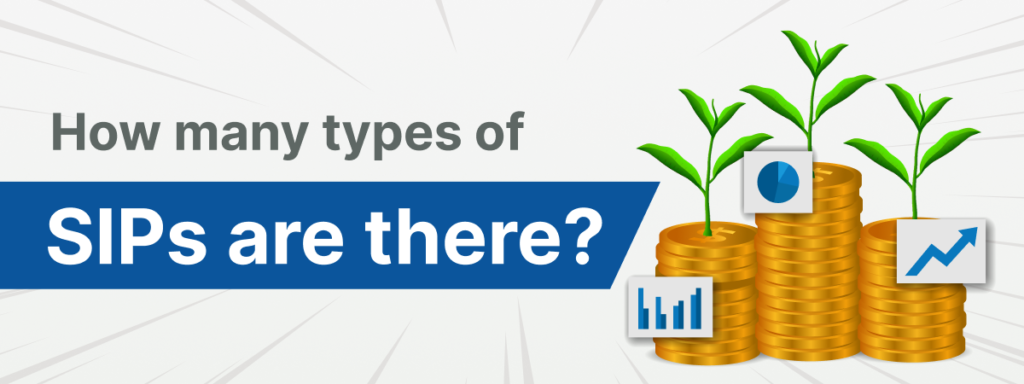What is a Stock SIP and why is it trending in India? A Stock SIP (Systematic Investment Plan) allows investors to regularly purchase shares of individual companies, similar to mutual fund SIPs but with direct equity exposure (LSI keywords: “direct stock investing”, “equity SIP”). This innovative approach has gained massive popularity as India’s retail investor base expands, with platforms like Groww and Zerodha making stock SIPs accessible to beginners (semantic keywords: “democratized investing”, “fractional shares”). The trend reflects growing investor confidence in India’s long-term growth story, coupled with the desire for higher returns than traditional fixed deposits or mutual funds can offer. Stock SIPs particularly appeal to millennials and young professionals who prefer hands-on wealth creation through disciplined, small-ticket investments in blue-chip stocks.
The rising popularity of Stock SIP in India stems from three key factors: affordability (investing as little as ₹500/month), transparency (knowing exactly which stocks you own), and flexibility (choosing your own stocks and investment frequency) [secondary keywords: “low-cost investing”, “portfolio control”]. Unlike lump-sum investments, Stock SIPs help mitigate timing risk through rupee-cost averaging (LSI keyword: “volatility protection”). However, experts caution that Stock SIPs require more research than mutual fund SIPs, as poor stock selection can lead to concentrated risk. As financial literacy grows and discount brokers simplify equity investing, Stock SIPs are becoming the go-to strategy for a new generation building wealth one stock at a time.
Investing in the stock market can be overwhelming, especially for beginners. But what if you could invest in stocks the same way you invest in mutual funds—small amounts, regularly, and automatically?
That’s where Stock SIP comes in.
Just like Mutual Fund SIPs, Stock SIPs in India allow you to invest in specific stocks periodically—say, every month. It’s a great way to build wealth gradually, beat market volatility, and develop financial discipline.
In 2025, with rising interest in direct equity investing, Stock SIPs are becoming a popular tool for Indian investors—from college students to working professionals—who want control, transparency, and flexibility.
What is Stock SIP?
A Stock SIP (Systematic Investment Plan in stocks) is a method where you invest a fixed amount at regular intervals (weekly/monthly) to buy shares of a specific company.
For example:
- If you start a SIP in Tata Consultancy Services (TCS) for ₹2,000/month, you’ll buy TCS shares every month—regardless of market ups and downs.
🔍 Stock SIP vs Mutual Fund SIP
| Criteria | Stock SIP | Mutual Fund SIP |
| Invests in | Individual stocks | Portfolio of stocks/bonds |
| Risk | High (depends on stock) | Moderate (diversified) |
| Control | You choose the stocks | Fund manager decides |
| Charges | Minimal brokerage fees | Expense ratio applies |
| Transparency | Full (you see what you buy) | Limited (only portfolio view) |
How Does Stock SIP Work in India?
Let’s break it down with a real-life example:
You set up a Stock SIP to invest ₹5,000 monthly in Infosys.
- On the 5th of every month, ₹5,000 is deducted from your account.
- If Infosys trades at ₹1,500, you buy 3.33 shares.
- Next month, if it’s ₹1,250, you buy 4 shares.
This method helps average out the cost over time—also known as Rupee Cost Averaging.
📲 How is it executed?
Using platforms like Zerodha, Groww, Upstox, or ICICI Direct, you can:
- Select the stock
- Set SIP amount & frequency
- Automate the order monthly
Why Choose Stock SIP Over Mutual Fund SIP?
✅ Pros:
- Full control over stock selection
- Transparent pricing and ownership
- No hidden fund management charges
- Long-term compounding potential
❌ Cons:
- Higher risk due to lack of diversification
- Requires stock-picking knowledge
- May involve brokerage charges
Ideal for those who want to build long-term wealth and have interest in learning equity investing.
Step-by-Step: How to Start a Stock SIP in India
Step 1: Open a Demat & Trading Account
Popular platforms: Zerodha, Groww, Upstox, ICICI Direct
Step 2: Choose Your Stock
Pick fundamentally strong stocks like Infosys, HDFC Bank, or ITC.
Step 3: Set SIP Amount and Date
Decide how much you want to invest monthly (e.g., ₹1,000–₹10,000).
Step 4: Enable Auto-Debit
Ensure your account is funded and set the instruction for auto-debit.
Step 5: Track Performance
Use tracking apps or Excel templates to monitor your investments.
Beginner Tips for Stock SIP
- Start small: Begin with ₹1,000/month
- Choose blue-chip stocks with consistent performance
- Avoid penny stocks or speculative bets
- Stick to 2–3 quality stocks instead of spreading thin
- Review quarterly, not daily
Advanced Strategies
- Dividend SIPs: Focus on companies with regular dividends (e.g., ITC, HDFC)
- Sectoral SIPs: Pick stocks from a specific sector like IT or Banking
- SIP + Swing Trading: Invest monthly but sell parts during market peaks (only for seasoned investors)
- Use technical indicators to time SIP slightly better, though regular investing is key
Stock SIP Taxation in India
| Tax Component | Applicability |
| Short-term Capital Gain | 15% (if held < 12 months) |
| Long-term Capital Gain | 10% over ₹1 lakh (if held > 12 months) |
| Dividend Tax | Taxable as per slab rate |
📌 Pro Tip: Keep a holding period of 1+ year to enjoy lower tax and better returns.
Best Stocks for SIP in India
📢 Disclaimer: These are suggestions, not recommendations. Do your own research (DYOR) or consult a SEBI-registered advisor.
| Company Name | Sector | Why Consider? |
| TCS | IT | Stable earnings, high ROCE |
| HDFC Bank | Banking | Consistent performer |
| Infosys | IT | Strong global presence |
| ITC | FMCG | High dividend yield |
| Asian Paints | Consumption | Market leader, brand moat |
Common Mistakes to Avoid in Stock SIP
- Chasing trending stocks (e.g., IPO hype)
- Not tracking fundamental changes
- Investing too much too soon
- Ignoring diversification
- Emotional investing—panic selling during market dips
Conclusion: Start Small, Think Big
Stock SIP is a powerful tool for long-term wealth creation in India. Whether you’re a college student, working professional, or seasoned investor, it’s never too late (or early) to start investing systematically in high-quality stocks.
You don’t need to time the market—you just need to spend time in the market.
FAQs: Stock SIP India
1. Can I stop my Stock SIP anytime?
Yes, it’s completely flexible. You can pause, edit, or stop your SIP anytime via your broker.
2. What’s the minimum amount to start Stock SIP in India?
You can start with as low as the price of one share—₹500–₹1,000 is common.
3. Is Stock SIP safe for beginners?
Safer if done with blue-chip stocks. Still, equity risk exists—invest only what you can hold long-term.
4. Do I need a Demat account for Stock SIP?
Yes. All Stock SIP investments are stored in your Demat account.
5. Can I do SIP in multiple stocks?
Absolutely. In fact, doing SIP in 2–3 good stocks can diversify your risk.










